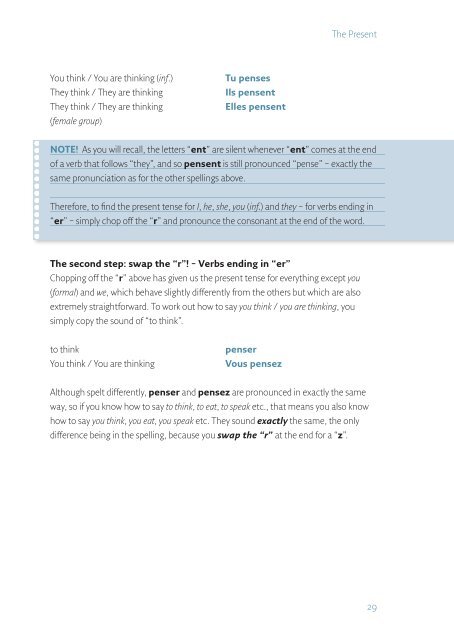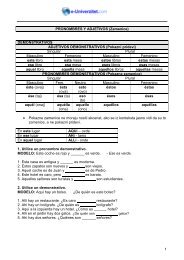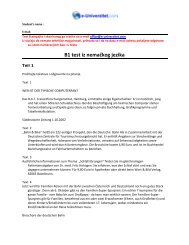Collins Paul Noble French booklet.pdf - Centar za edukaciju i ...
Collins Paul Noble French booklet.pdf - Centar za edukaciju i ...
Collins Paul Noble French booklet.pdf - Centar za edukaciju i ...
Create successful ePaper yourself
Turn your PDF publications into a flip-book with our unique Google optimized e-Paper software.
You think / You are thinking (inf.) Tu penses<br />
They think / They are thinking Ils pensent<br />
They think / They are thinking Elles pensent<br />
(female group)<br />
The Present<br />
NOTE! As you will recall, the letters “ent” are silent whenever “ent” comes at the end<br />
of a verb that follows “they”, and so pensent is still pronounced “pense” – exactly the<br />
same pronunciation as for the other spellings above.<br />
Therefore, to fi nd the present tense for I, he, she, you (inf.) and they – for verbs ending in<br />
“er” – simply chop off the “r” and pronounce the consonant at the end of the word.<br />
The second step: swap the “r”! – Verbs ending in “er”<br />
Chopping off the “r” above has given us the present tense for everything except you<br />
(formal) and we, which behave slightly differently from the others but which are also<br />
extremely straightforward. To work out how to say you think / you are thinking, you<br />
simply copy the sound of “to think”.<br />
to think penser<br />
You think / You are thinking Vous pensez<br />
Although spelt differently, penser and pensez are pronounced in exactly the same<br />
way, so if you know how to say to think, to eat, to speak etc., that means you also know<br />
how to say you think, you eat, you speak etc. They sound exactly the same, the only<br />
difference being in the spelling, because you swap the “r” at the end for a “z”.<br />
29









